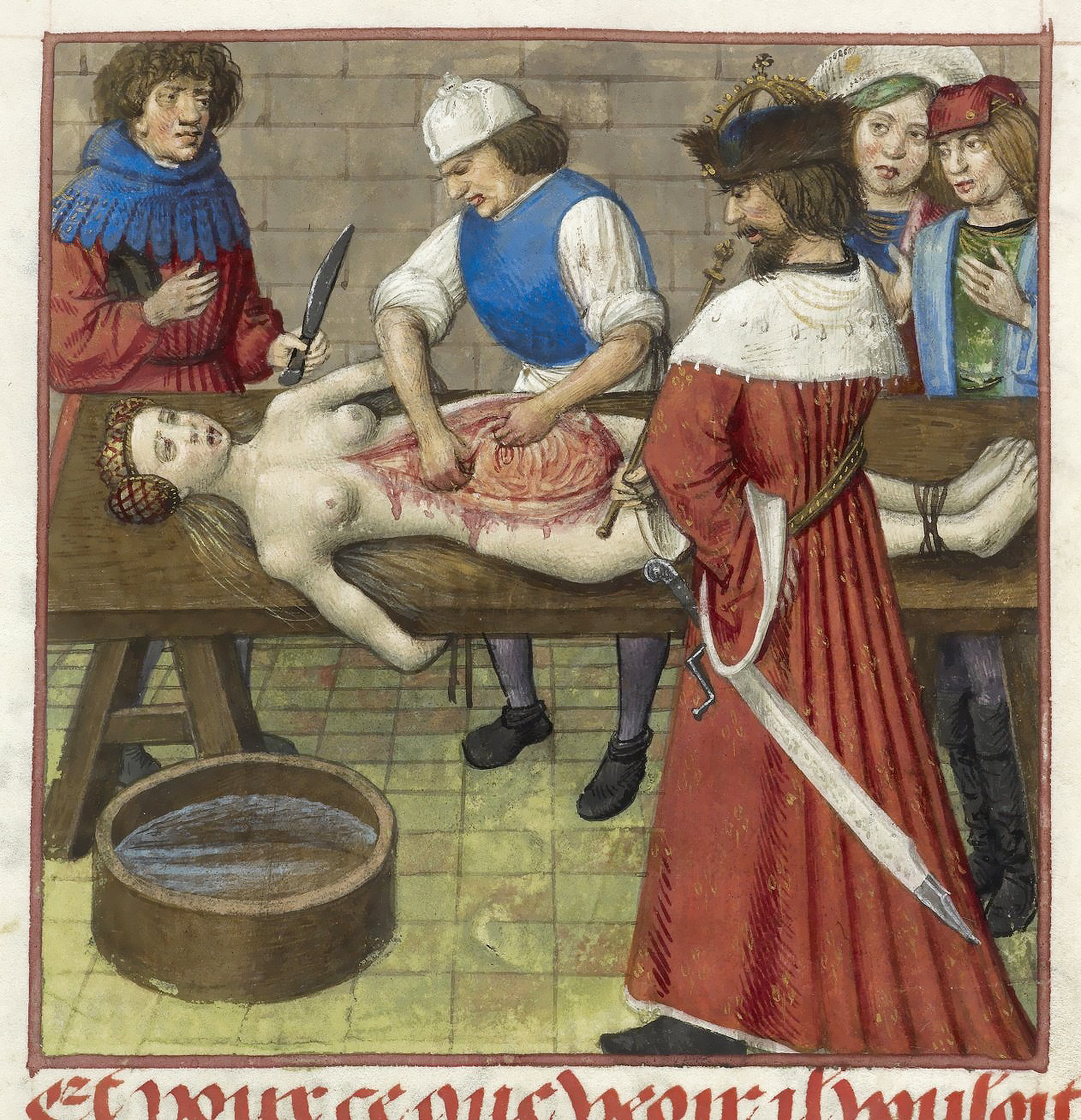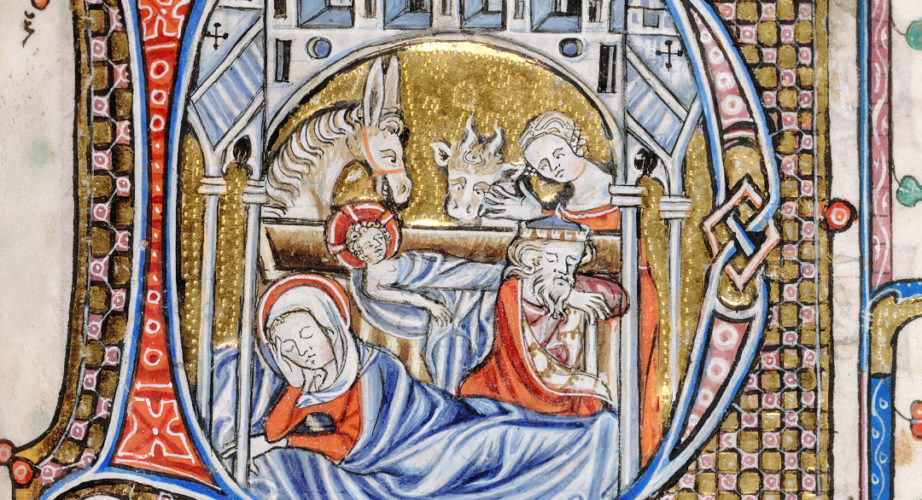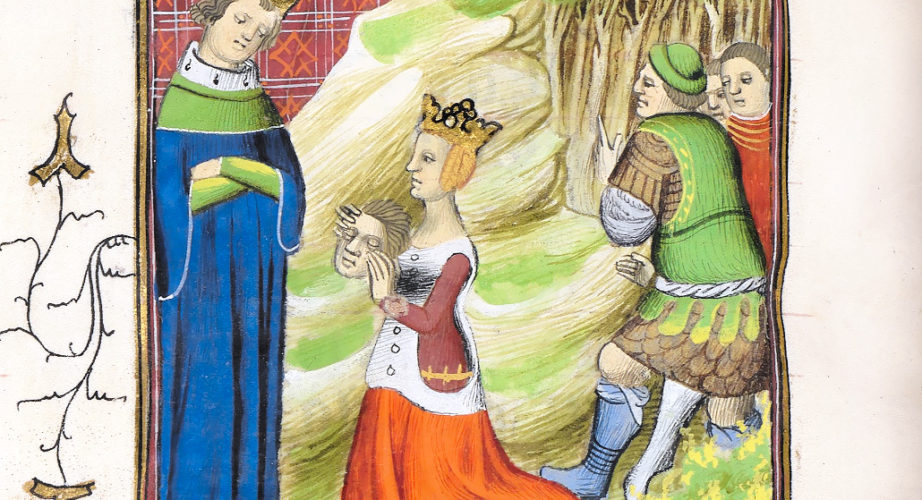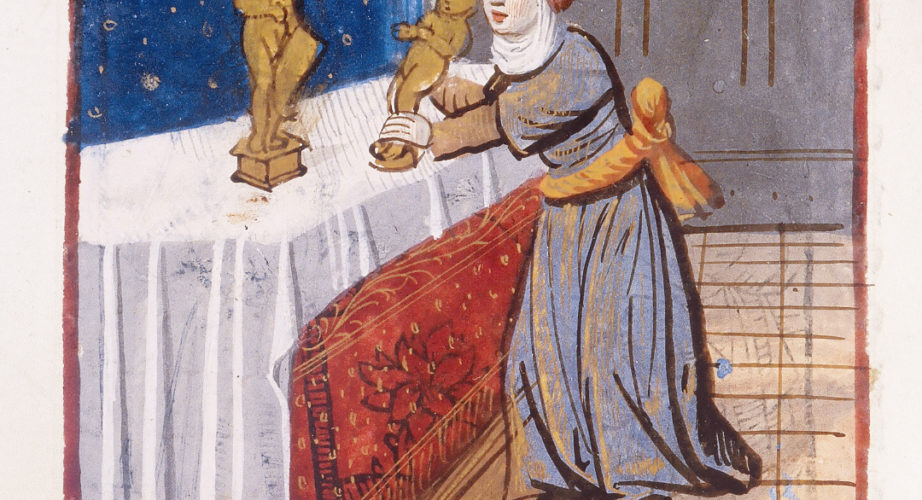NERO AND AGRIPPINA
 December 15, AD 37, Antium: the future Roman Emperor, Nero, was born. As the only son of Gnaeus Domitius Ahenobarbus and Agrippina the Younger, Nero was related to both Caligula and Augustus. After the death of his biological father in AD 40, the young Nero was adopted by his great-uncle (and new stepfather) Claudius and thus became his heir and successor.
The most infamously predominant figure in Nero's life was that of his mother, Agrippina. Very likely implicated in Claudius' death, the woman seemed to have a great thirst for power and strived for Nero's nomination as emperor. Once her son ascended to the throne, Agrippina dominated his decisions until Nero himself finally cast her off. While the relationship between the two had always been troubled, various events, including Nero's many affairs, further eroded the bond between mother and son; Agrippina soon realized she would not be able to control Nero any longer and thus began scheming against him. Well-aware of this, Nero began to do the same.
Suetonius and Tacitus, Nero's main biographers as well as fervent detractors of his rule, provided vivid descriptions of various attempts made by the emperor to murder his mother. As she was being executed, the matron allegedly told her murderers to slay her by striking the very womb that had given birth to her son. According to some, Nero then inspected his mother’s dead body and praised her beauty before finally burning her corpse in the traditional burial pyre.
"Nero and Agrippina", illumination from the manuscript "Roman de la Rose" by Guillaume de Lorris and Jean de Meun, ms. Harley 4425, f. 59r, c. 1490-c. 1500, British Library, London.
December 15, AD 37, Antium: the future Roman Emperor, Nero, was born. As the only son of Gnaeus Domitius Ahenobarbus and Agrippina the Younger, Nero was related to both Caligula and Augustus. After the death of his biological father in AD 40, the young Nero was adopted by his great-uncle (and new stepfather) Claudius and thus became his heir and successor.
The most infamously predominant figure in Nero's life was that of his mother, Agrippina. Very likely implicated in Claudius' death, the woman seemed to have a great thirst for power and strived for Nero's nomination as emperor. Once her son ascended to the throne, Agrippina dominated his decisions until Nero himself finally cast her off. While the relationship between the two had always been troubled, various events, including Nero's many affairs, further eroded the bond between mother and son; Agrippina soon realized she would not be able to control Nero any longer and thus began scheming against him. Well-aware of this, Nero began to do the same.
Suetonius and Tacitus, Nero's main biographers as well as fervent detractors of his rule, provided vivid descriptions of various attempts made by the emperor to murder his mother. As she was being executed, the matron allegedly told her murderers to slay her by striking the very womb that had given birth to her son. According to some, Nero then inspected his mother’s dead body and praised her beauty before finally burning her corpse in the traditional burial pyre.
"Nero and Agrippina", illumination from the manuscript "Roman de la Rose" by Guillaume de Lorris and Jean de Meun, ms. Harley 4425, f. 59r, c. 1490-c. 1500, British Library, London.
Post consigliati
Happy Holidays from Folia Magazine!
Two sleepy parents and a very awake Child... in a way, this Nativity…
Chiomara
If there is something we have understood about Boccaccio and his view of…
Rachel
On September 30, the Church celebrates the feast day of St. Rachel, Jacob's…


